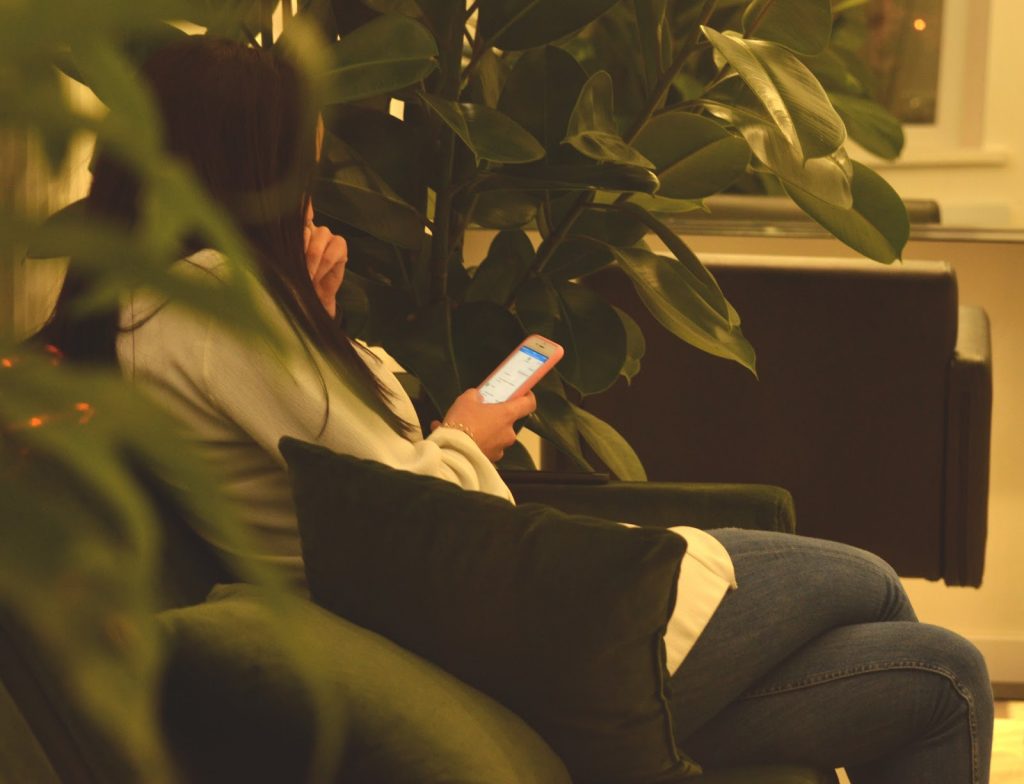Eyes glued on our phone: What does Phubbing mean?

Imagine this: you’re out for dinner with your friends, eager to catch up. Ping! The conversation soon tapers to a halt as your companions, distracted by notifications, tap at their phones. Sounds familiar? Your friends are guilty of phubbing.
Tapping Out: The Role of Technology in Phubbing
You may not be aware of this term, but you should certainly be familiar with this phenomenon. Millennial speak for being “snubbed for a phone”, phubbing describes the behaviour of ignoring the person you’re with in favour of your phone.
Ironically, the technology intended to facilitate and increase interaction and connectivity may have a part to play in driving us apart. Texting, watching videos or even mindlessly scrolling through your social media feeds on your phone while in the company of others is considered phubbing behaviour.
Technology has entered all parts of our lives, fuelling our constant connection. This may result in problems including internet addiction and the fear of missing out, which are predictors of phone addiction. Smartphone addiction also correlates to phubbing behaviour.
This desire to be constantly online and aware may in fact cause you to neglect your real-life interactions with others.
The Great Disconnect

Phubbing may seem harmless – after all, people do it all the time, right? A little scrolling doesn’t seem to be very harmful. However, it’s a big deal.
Phubbing has become a widespread phenomenon. A 2016 study found that 43.8% of respondents phubbed others more than 2 times a day. With increasing smartphone penetration, this problem is poised to become even bigger.
Such presence of technology can negatively impact the quality of our interactions with others. Texting during conversations has been found to reduce the quality of conversations for both the “phubber” and the “phubbed”. Satisfaction in romantic relationships was found to take a hit with phubbing behaviour. Even the presence of mobile devices themselves can cause people to feel less close and connected with each other.
Looking at your phone in the presence of people you’re supposed to be connecting with may seem innocent, but it detaches you from what’s most important: the present.
Being Present: Maintaining Healthy Device Usage

Self-control to resist the temptation of checking your devices is clearly becoming short in supply as phubbing grows more common. Habits from young can have a great influence on behaviour as people grow older.
Currently, more than 50% of children below the age of one use mobile devices daily. In fact, children below the age of one should not have any contact with screens at all, according to the World Health Organisation. Furthermore, the recommended usage of devices for children between two to four years old is limited to not more than an hour a day. High exposure to digital devices from a young age may increase our reliance on technology.
Stopping the cultural norm of phubbing needs to start early. Managing device use and developing discipline is most effective when your children are still young. A parental control application with time tracking and device scheduling features could help in ensuring your child develops good device habits.
To reconnect with each other, we need to disconnect. Starting young is the best option.
Tools Designed for Healthier Eyes
Explore our specifically designed products and services backed by eye health professionals to help keep your children safe online and their eyes healthy.
